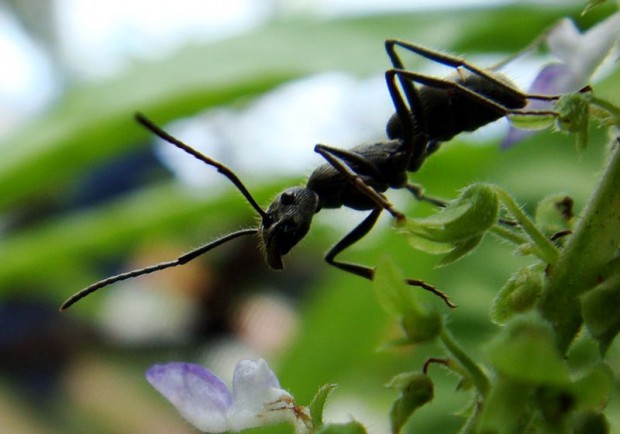
In T. H. White’s Arthurian novel The Once and Future King, the wizard Merlin turns young Arthur into an ant in order to teach him what it’s like to live without freedom. As an ant, “Wart” (as young Arthur is known) finds himself mindlessly obeying the arbitrary imperatives of instinct and custom, following the commands of the colony’s chemically-based communication network even when he knows there’s a better way.
According to research published in the Journal of Experimental Biology, however, even relatively primitive ant species are granted a degree of individual freedom when it comes to finding their way. And it’s that freedom, ironically, that makes the ants better at learning the shortest distance between two points. It’s a discovery that offers lessons not only about insect behavior, but the design of computer networks.
It’s long been understood that ants lay down a chemical path as they travel, a breadcrumb-trail of pheromones by which they’re able to find their way back home and to lead their nest mates to promising new sources of food. Researchers found that when presented with obstacles, individual ants didn’t merely return to the nest but went into search mode, looking for a new path around the blockage. When faced with a highly complicated maze, individual ants seem to independently search for the shortest route through the labyrinth. Other ants find their freely-searching sisters’ trails, and soon the whole colony is moving efficiently through the maze.
Computer networks already use a form of virtual “ants”�bots that roam the system, searching and mapping the most efficient pathways. But these software ants are modeled on older, Wart-like models of ant behavior: when they encounter a blockage, they simply retrace their own trails. By studying the decisions actual ants make when faced with obstacles, researchers hope to learn ways to make electronic systems a little smarter�and, it would seem, a little freer as well.
[via Nature News] Gearfuse Technology, Science, Culture & More
Gearfuse Technology, Science, Culture & More


